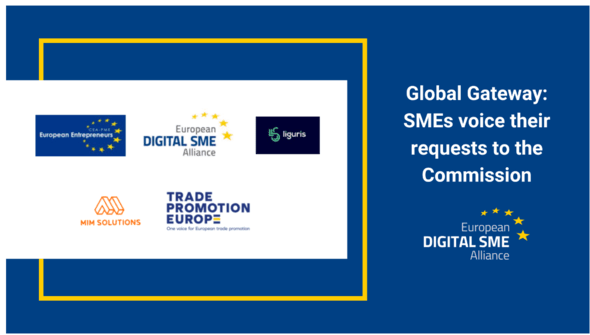The European Commission hosted on the 24th of April the second plenary meeting of the Global Gateway Business Advisory Group (BAG), where a joint discussion paper was presented by SME organizations and companies. The Global Gateway, launched in December 2021, is an EU initiative aiming to invest €300 billion in sustainable infrastructure projects worldwide from 2021 to 2027. The strategy is supported by the private sector, including the BAG, which consists of 59 members and 10 observers, providing expert advice to the Commission.
On that particular meeting, the presented paper outlined proposals to better integrate European SMEs into Global Gateway activities, focusing on enhancing their role in local economic ecosystems.These included:
- One-Stop-Shop for SMEs: Creation of a one-stop-shop at the European Commission level to provide clear, publicly available guidelines tailored for SME participation.
- Adaptation of Eligibility Criteria: Lowering the minimum turnover and international experience requirements in public procurement rules to promote SME inclusion, and mandating a minimal percentage of SMEs in Global Gateway projects.
- B2B Focus and Matchmaking: Strengthening business-to-business interactions, facilitating partnerships between European SMEs and local companies in beneficiary countries.
- Support for Smaller Projects: Allowing smaller projects to become flagship initiatives to better access financial support and guarantees from Development Finance Institutions (DFIs).
- Sustainable Economic Relationships: Supporting European SMEs with dedicated funds to add value to local economic ecosystems, provide additional services, and upskill local workforces for sustainable development.
The paper highlights several barriers hindering SMEs from fully engaging in Global Gateway activities, including complex procedures, funding shortages, resource constraints, and unbalanced risk exposure. The recommendations aim to address these issues by creating a more inclusive and supportive environment for SMEs.
The European Commission, with the support of the BAG and its Digital Subgroup, aims to implement these recommendations to foster a stronger and more effective engagement of SMEs in the Global Gateway. By doing so, the initiative seeks to create long-lasting, sustainable economic relationships with local ecosystems in partner countries, benefiting both European SMEs and local communities.
For more detailed insights, you can read the full discussion paper here.


